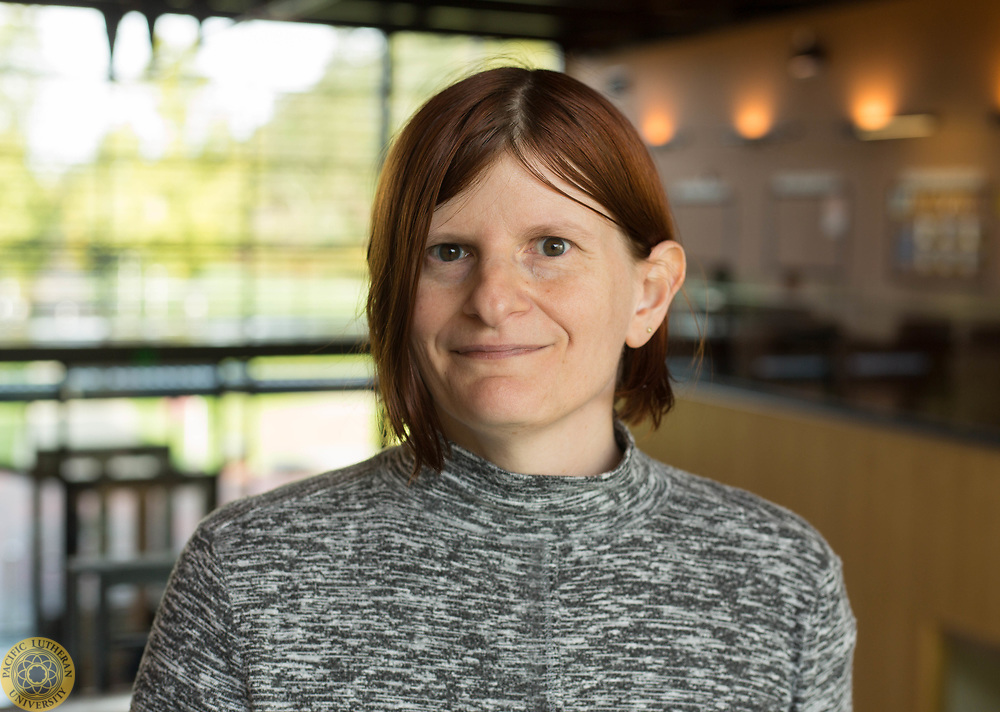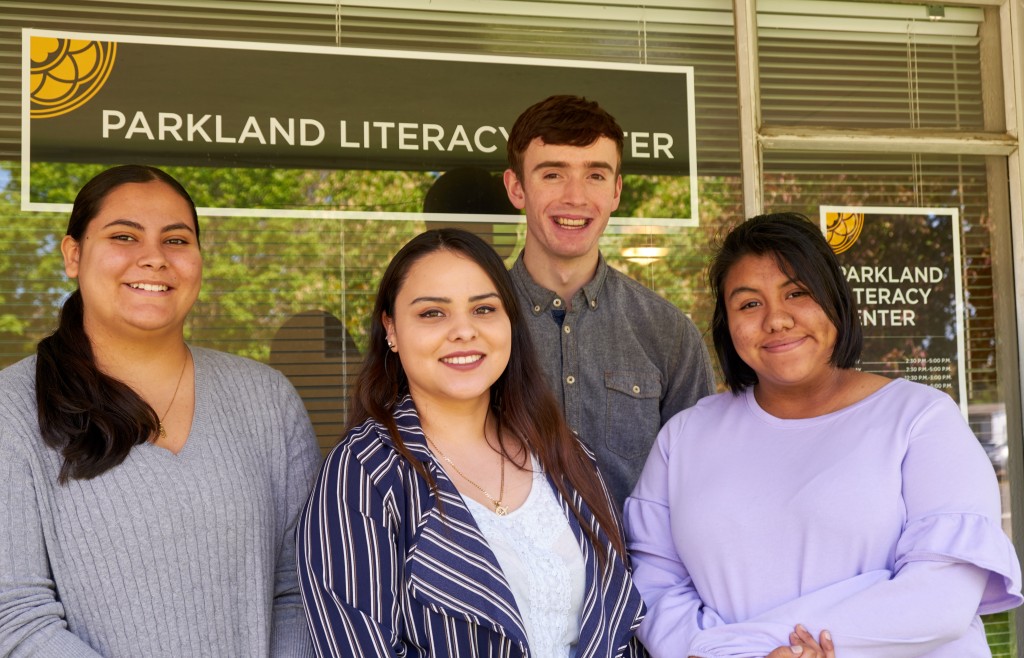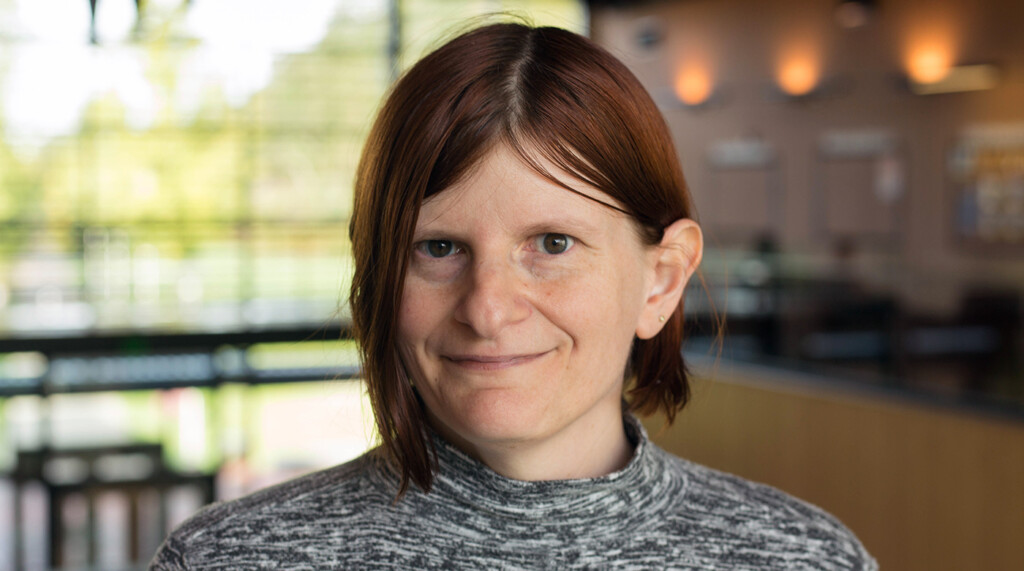Page 1 • (15 results in 0.031 seconds)
-

Professor of Mathematics | Department of Mathematics | edgartj@plu.edu | 253-535-7238 | Tom grew up in Colorado and attended college at Dickinson College in Carlisle, Pennsylvania.
) Algebraic Combinatorics Selected Presentations 12th Annual Western Washington Community College Student Mathematics Conference , Keynote Presentation, Bellevue College (February 24, 2018) Colloquium, Generalized Binomial Coefficients via the Dominance Order on Natural Numbers, Seattle University (October 2014) Colloquium, Generalized Binomial Coefficients via the Dominance Order on Natural Numbers, University of Puget Sound (October 2013) Dickinson College Math/CS Chats, A Fascinating Connection Between
-

Professor of Computer Science | Department of Computer Science | blahakd@plu.edu | 253-535-8702
Kenneth Blaha Professor of Computer Science he/him/his Phone: 253-535-8702 Email: blahakd@plu.edu Status:Phased Retirement Website: https://cs.plu.edu/~blahakd/ Professional Education Ph.D., University of Oregon, 1989 M.S., Computer Science, University of Oregon, 1984 M.S., Mathematics, University of Oregon, 1981 B.A., University of Minnesota, Morris, 1978 Areas of Emphasis or Expertise Computational Complexity Algebraic Algorithms Computer Science Education
-
Major in Mathematics 32 semester hours of mathematics, plus 4 semester hours of supporting courses 32 semester hours of mathematics: MATH 152, 242, 253, 317 or 318 or 319, 331, 433, 455, 499A, 499B 4
review of algebra emphasizing problem solving skills. The notion of function is introduced via examples from polynomial, rational, trigonometric, logarithmic and exponential functions. We also explore inverse trigonometric functions, identities, graphing and the solving of triangles. Appropriate as preparation for Math 123, 128 and 140. Prerequisite: PLU math placement exam and two years of high school algebra. (4) MATH 123 : Modern Elementary Mathematics I: Number Sense and Algebraic Sense - QR
-
20 semester hours Up to 8 approved semester hours from supporting majors and minors can be applied to the STEM Education minor. At least 12 semester hours must be earned in residence at PLU.
following courses: DATA 133: Introduction to Data Science I (4) CSCI 144: Introduction to Computer Science (4) MATH 123: Modern Elementary Mathematics I: Number Sense and Algebraic Sense (4) MATH 145: Statistics for Biologists (4) MATH 151: Calculus I (4) MATH 152: Calculus II (4) MATH 242: Introduction to Mathematical Statistics (4) MATH 321: Geometry (4) MATH/EDUC 446: Mathematics in the Secondary School (4)
-
Statistics provides a strong career path with excellent opportunities, and statisticians are in high demand.
mathematics, conduct evening help sessions, grade mathematics homework assignments, and coach/tutor public school students in the Mathlete Coaching Program.How do I Become a Statistician?To become a statistician, you must first develop a strong background in the field of mathematics. Once you have a thorough grounding in topics such as calculus and linear algebra, you may begin courses in probability theory, statistical analysis, regression analysis, and even combinatorics. These classes will vary between
-

Professor of Mathematics | Department of Mathematics | stuartjl@plu.edu | 253-535-7403 | Professor Jeff Stuart teaches mathematics and statistics for the Mathematics Department.
program. In addition to teaching a variety of courses, he has supervised over forty senior theses and masters projects in pure and applied mathematics, statistics and finance. Professor Stuart obtained bachelors degrees in mathematics and physics from Pomona College. Subsequently, he earned an M.S. and a Ph.D. in mathematics from the real UW — the University of Wisconsin at Madison. His mathematics research interests lie at the intersection of graph theory, matrix theory and combinatorics. In addition
Office HoursWed: 10:00 am - 11:00 amWed: 4:00 pm - 5:00 pmThu: 11:00 am - 12:30 pmThu: 1:30 pm - 3:30 pmFri: 10:00 am - 11:00 amMon - Fri: - -
May 4th and May 5th Join the Mathematics Department to hear the senior capstone presentations. Student presentations will take place Friday and Saturday. Talks are scheduled in Morken 214 and 216.
2018 Mathematics Capstone SymposiumMay 4th and May 5th Join the Mathematics Department to hear the senior capstone presentations. Student presentations will take place Friday and Saturday. Talks are scheduled in Morken 214 and 216. Friday, May 4th3:00pm – The Combinatorial Design of Kirkman’s Schoolgirls Megan Hall This paper addresses the “Kirkman’s Schoolgirls” combinatorics problem: “Fifteen young ladies of a school walk out three abreast for seven days in succession: it is required to
-

Professor of Mathematics | Department of Mathematics | sklarjk@plu.edu | 253-535-8341 | Jessica received her Ph.D.
. 166(5), 2009: 447-451 Peer-reviewed, international publication. "The ideal vacuum: visual metaphors for algebraic concepts." Proceedings of the International Conference of Bridges: Mathematical Connections in Art, Music, and Science 2007: 241-246 Peer-reviewed, international publication. "Dials and levers and glyphs, oh my! Linear algebra solutions to computer game puzzles." Mathematics Magazine Vol. 79(5), 2006: 360-367 Peer-reviewed, national publication. Accolades Author of the Month at Ada's
Area of Emphasis/Expertise -

The Parkland Literacy Center (PLC), created in 2018 by English Writing Professor Scott Rogers and Hispanic Studies Professor Bridget Yaden, is located on the western edge of PLU’s campus. The PLC, as it’s called, offers after-school tutoring in all academic subjects to Keithley Middle School…
staff to draw on the interdisciplinarity emphasized throughout their PLU education. Tutors sometimes work in their areas of expertise, but they also regularly step outside their comfort zone to help with subjects that might not be quite so familiar to them. On any given day, PLC staff may be balancing out formulas or helping students write essays. For example, Nick, an English Writing and Hispanic Studies major who aspires to be a poet, helps students understand algebraic equations, too. The beauty
-

PLU mathematics professor Jessica Sklar is one of 23 collaborators creating a notable work of art, soon touring the nation. Called Mathemalchemy, the installation celebrates the beauty and creativity of mathematics. The finished piece will be about 16 x 8 feet in area and 9…
and features fractal snowflakes. Sklar currently works with artists and mathematicians creating Tess’s ceramic shell, knitted arms and legs, and a fabric-and-brass-rod kite accompanying the tortoise. Mathemalchemy is Sklar’s newest exploration of the connections between art and math. In 2007, Sklar exhibited photographs depicting visual metaphors of abstract algebraic concepts, and in 2017, The Journal of Humanistic Mathematics published her “love poem for mathematics.” In addition to her work
Do you have any feedback for us? If so, feel free to use our Feedback Form.


